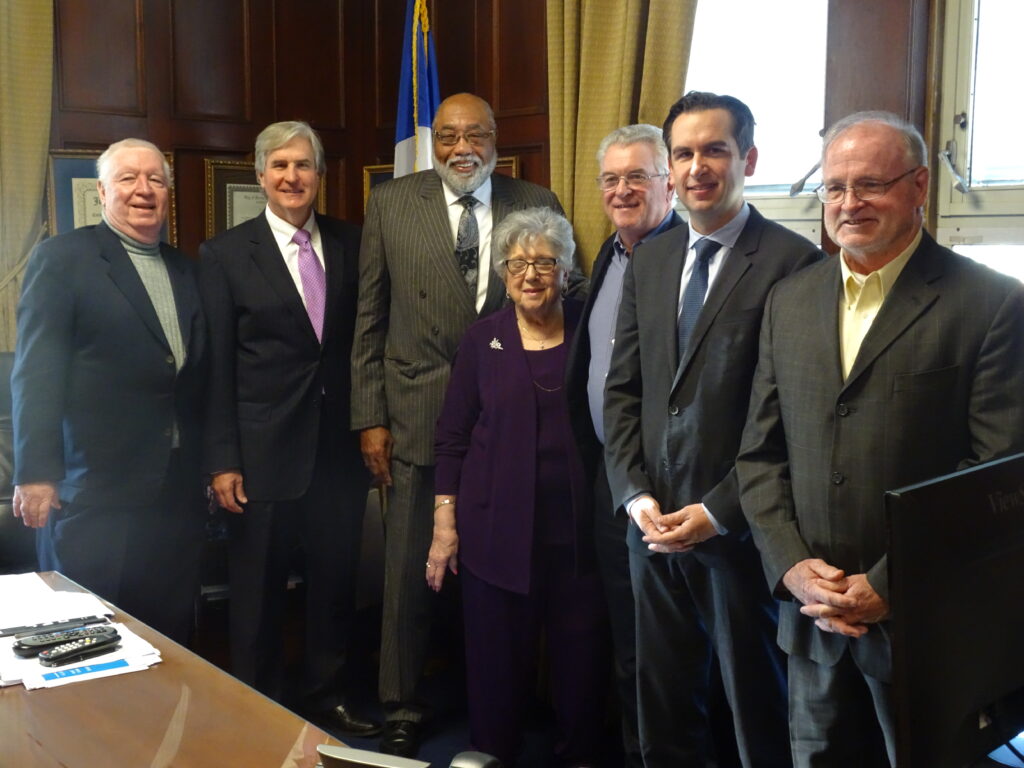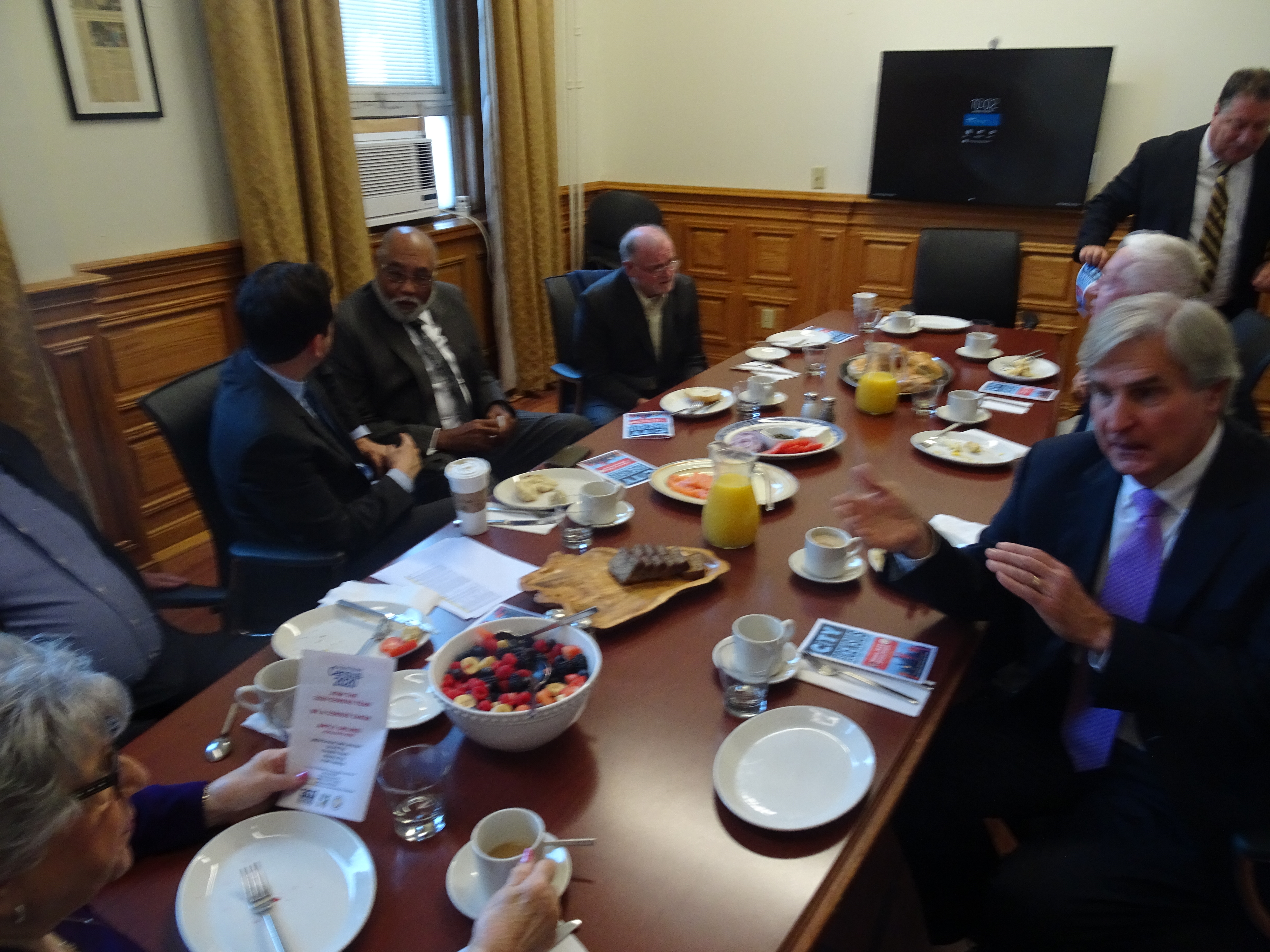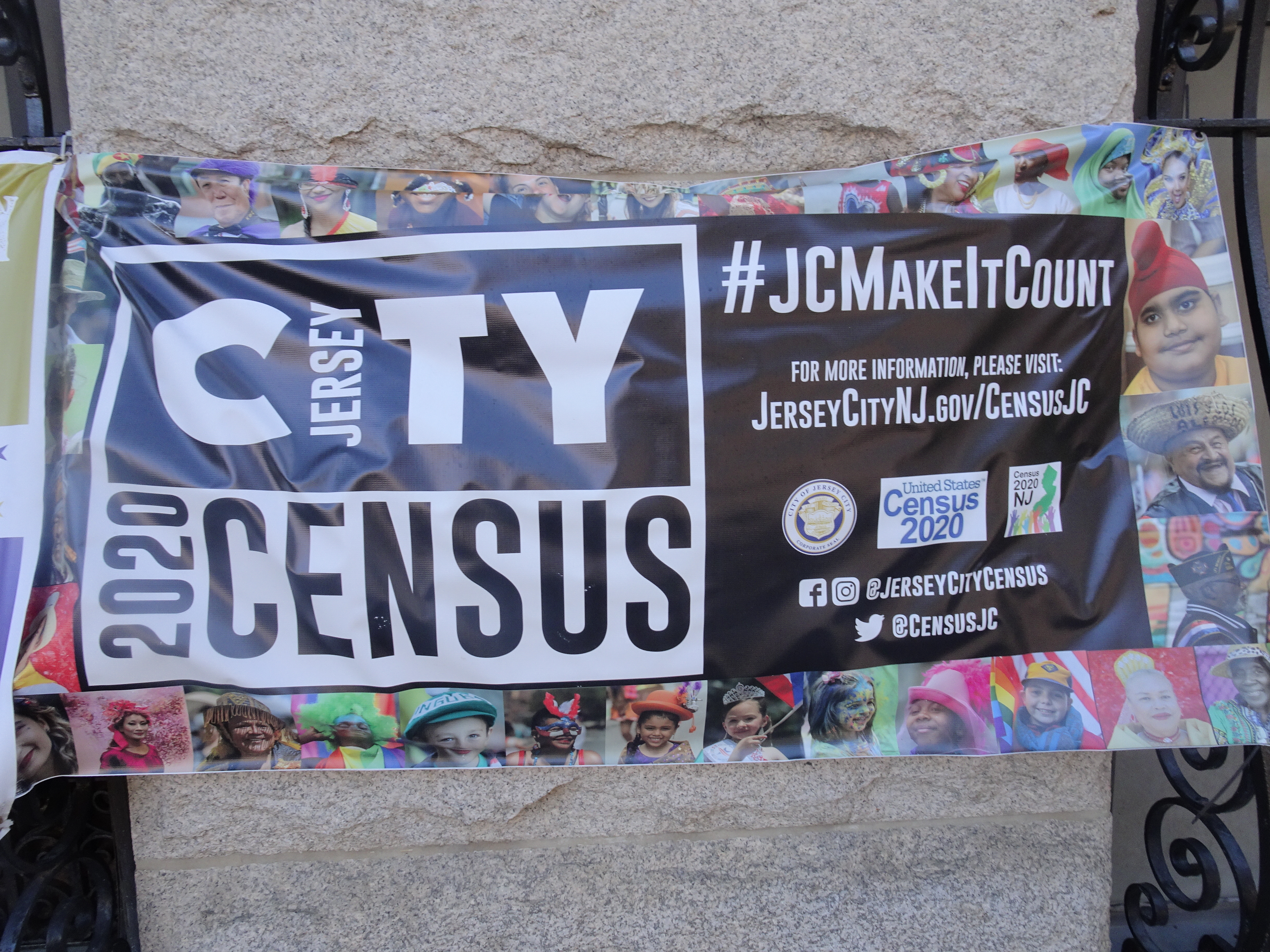A Gathering of Jersey City Mayors
Listen to audio version of this article

Seven of the eight surviving mayors of Jersey City appeared in the same room at the same time and the universe did not explode.
While in public, these officials – some of whom date back to the early 1980s – came together for the common cause of getting the right count in the upcoming 2020 census, they even seemed congenial behind closed doors for the earlier breakfast where many would have assumed they might let old grudges surface.
The event featured guest appearances by Jerramiah Healy, L. Harvey Smith, Bret Schundler, Joseph Rakowski, Marilyn Roman, and Gerald McCann. Paul Jordan – who served as mayor in the 1970s – could not attend due to a family matter.
The ring master of this political circus, of course, was Mayor Steven Fulop – who has the most to gain from an accurate census since Jersey City is poised to overtake Newark as the most populated city in the state.
This is more than just about bragging rights. Many aspects of state and federal aid are at stake as well, but perhaps as importantly, redistricting of the city, state, county and federal legislative boundaries will be based on the new numbers for the next ten years.
A massive reduction in population in the 1970s led to Jersey City losing sole possession to its own seat in the House of Representatives in Washington DC. The more recent massive increase in population in Jersey City could justify recreating that seat and make available to some lucky local politician an opportunity not currently available. Jersey is currently split between two districts, with Rep. Albio Sires (out of West New York) representing one portion and Rep. Donald Payne Jr. (out of Newark) representing the other.
In an era when most of the focus of gerrymandering has been on the GOP, districts like those in Hudson County stand out in particular Sires’ which is largely designed to guarantee the election of a Latino candidate.
This is hardly good news for a politically ambitious Jersey City mayor like Fulop who – denied his bid to run for Governor – may be eyeing a new congressional seat instead. Even if redistricting doesn’t get Jersey City’s congressional seat back, being mayor of the largest city in the state would position Fulop for another shot at becoming governor, if not in 2021, then in 2025 when term limits will not allow Phil Murphy to seek a third term.

But don’t believe for one minute, the seven mayors that came to have breakfast in City Hall intentionally wanted to help forward Fulop’s political agenda. There are plenty of good reasons for each to support an accurate census count. In some cases, these reasons may be just to protect their historic tur, although many of the reasons my be truly noble – especially in an era when Jersey City streets are teaming with federal immigration agenda much in the manner of Dementors of a Harry Potter movie, waiting to suck the souls out of unsuspecting undocumented residents. These seven mayors appear to want to dispel the culture of fear that might keep people from being counted, each saying the right thing in order to get people to cooperate.
“As mayor in 1989, again, I was also an active participant in the 1990 census,” said former Mayor McCann, noting that the census is used for national budgeting purposes which provides funds needed for local residents.
McCann, unfortunately, did not get to see the benefit of his hard work since he was driven from office by a conviction some claim was political motivated. McCann in 1990 was at war with then County Executive Robert Janiszewski and was poised to seize control of the Hudson County Democratic political machine when he was hit with charges involving his private sector career.
The conviction and subsequent forced resignation set the stage for several historic events. Roman, who was sitting council president at the time, became the first and as yet only woman mayor in Jersey City history and Schundler became the first republican mayor since the turn of the century after winning a special election.
Roman, grateful then and still for the work McCann had done in her neighborhood in Jersey City, recalled when she was named mayor.
“A number of young women came up to me to celebrate the fact that I’ve become the first woman to serve as mayor,” Roman recalled during the mayoral breakfast. “They told me I’ve broken the glass ceiling. I told them this is an all-boys down and it’ll be another 50 years before they’ll sett it again. Now, 30 years later and it’s still true.”
While everybody was cordial during that breakfast, the gathering of mayors stirred up old memories among a number of them.
While Rakowski in the public session talked about how Jersey City is poised to become the largest city in the state, saying the 2010 had it only 4,000 residents behind Newark, he still regrets his decision not to run in the 1991 special election for mayor.
“I could have beaten Schundler,” he said. “But I gave my word not to run and I kept my word.”
Even the public session had a moment or two of dissention such as when Smith refused to concede McCann as the father of the new Jersey City waterfront, claiming other mayors played their role in setting the foundation for the Hudson County Gold Coast.
Smith, who became mayor briefly after the untimely death of then Mayor Glenn Cunningham in 2004, is the Rodney Dangerfield of Jersey City politics, never quite able to get the respect many believe he deserved, yet still amazingly dignified in defeat.
Still there is some justification for giving McCann a huge amount of credit, especially since the waterfront he inherited in 1981 can be seen in its full glory as the setting for the cult film, “The Toxic Avenger” filmed entirely in the area that is currently occupied by Newport.
Perhaps the most gracious of the former mayors was Healy, who became Fulop’s chief rival for a large part of the last decade and was defeated by Fulop in a hotly contested 2013 municipal election.
“If all of our residents respond to the census, I feel my opinion will be born out and we’ll be the largest city in the state, and therefore getting our lion’s share for federal aid and our share of proper representation in Congress.”






